The curb weight and gross weight are both important metrics to understand, especially when referring to towing and payload capacities.
Though similar, they are distinctly different. The curb weight is a predetermined and measured weight from the manufacturer that provides the weight of a vehicle without passengers or cargo with a full tank of gas.
The gross weight is the actual weight of a vehicle at any point in time.
The curb weight is used to calculate the max towing and payload capacity.
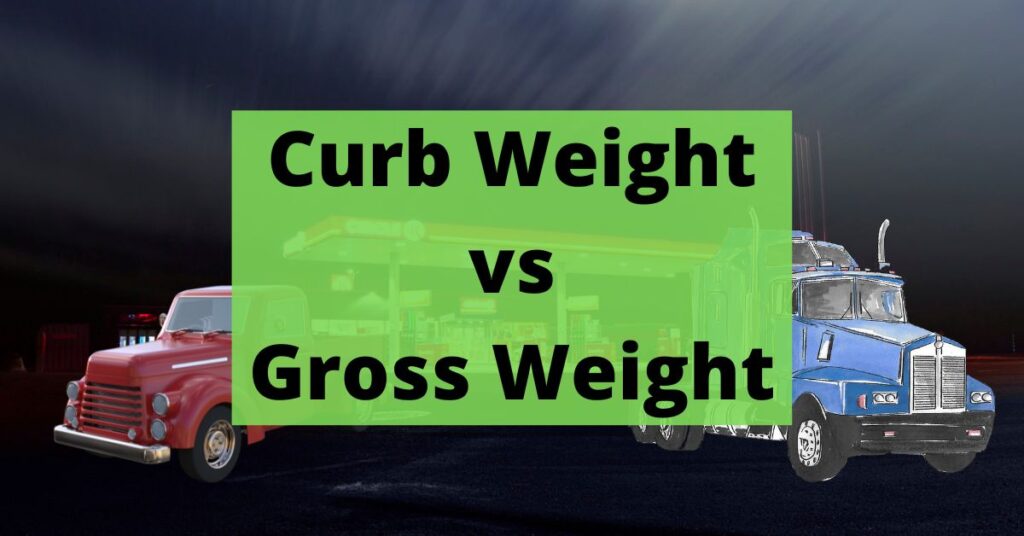
Curb Weight vs Gross Weight
Curb weight and gross weight, though similar, are different. The curb weight refers to the weight measured and recorded by the manufacturer of a truck or vehicle. The gross weight refers to the actual weight of a vehicle measured by a scale in any point in time.
So in simple terms, the curb weight is the stock weight of the vehicle with a full tank of gas, and the gross weight is the weight measured in real time.
What is curb weight?
Curb weight is a common metric provided by manufacturers. This weight refers to the weight that manufacturers have measured for their vehicles in stock with a full tank of gas but no cargo or passengers.
How is curb weight measured?
Curb weight is measured by manufacturers that fill the gas tanks of their cars, place them on a scale and record the weight.
This is the curb weight.
The curb weight is a way for manufacturers to provide end users with a guide as to the weight of their vehicle without any modifications or cargo. Knowing the curb weights helps to provide a basis for towing and transporting a vehicle.
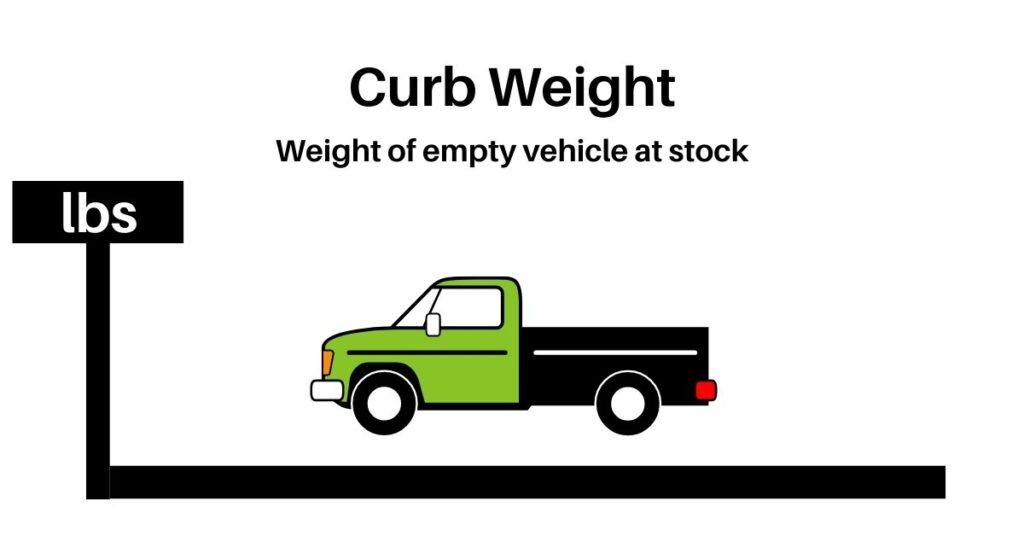
What is gross weight?
Gross weight is the active weight of a vehicle at any given time.
The best way to describe it is to describe it is through a scenario.
If you drive your vehicle on to a scale with you and your kids in it with your ski equipment in the back, the weight that the scale reads is the gross weight.
Typically the gross weight is larger than the curb weight because there is often added cargo or passengers in the car.
The added weight of passengers, cargo, tongue weight, customizations, and accessories will all impact the gross weight.
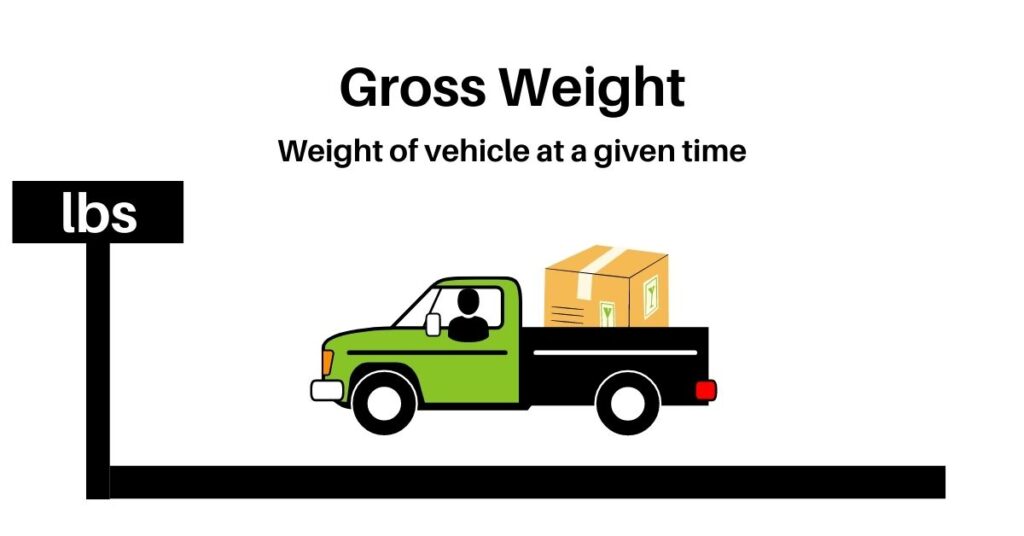
Why are these weights important?
It is important to understand these weights for multiple reasons. Both of these weights are important to understand the payload capacity and towing capacity.
The following section will make more sense if you read: GCWR vs GVWR Totally Explained
How do they relate to Payload Capacity?
Payload capacity is a rating typically provided by manufacturers as the maximum amount of weight that can be added to a truck or vehicle; this includes modifications, passengers, cargo, and tongue weight.
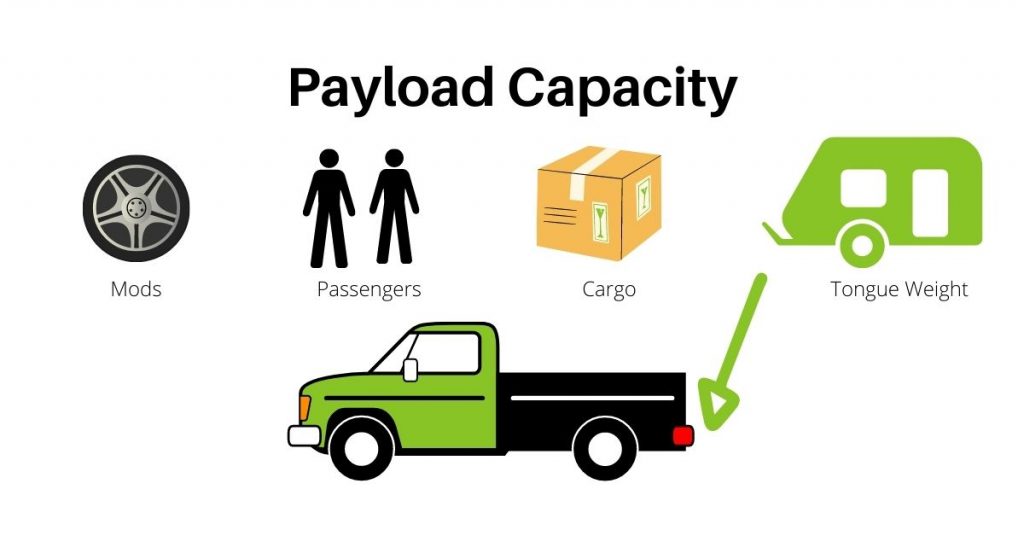
The GVWR is a rating provided by manufacturers that gives the maximum gross weight of a vehicle at any time. For example is a car GVWR is 5,000 lbs, at no point in time can the gross weight be more than 5,000 lbs.
The gross weight must be less than or equal to the GVWR.
For more information read: What Does GVWR Mean?
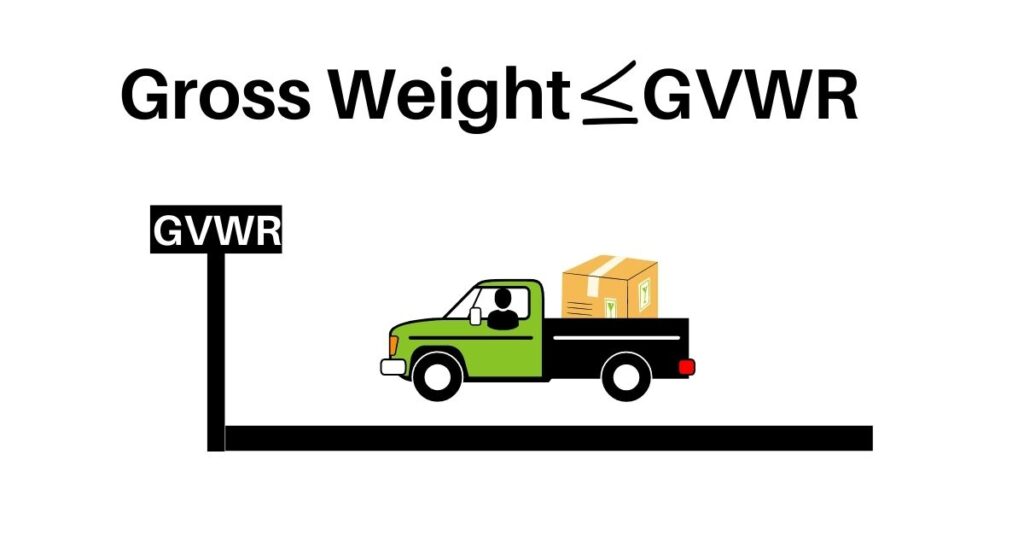
Payload capacity is calculated by subtracting the curb weight from the GVWR. For example, if a car has a GVWR of 5,000 lbs but weight 3,500 lbs, the max payload capacity is 1,500 lbs.
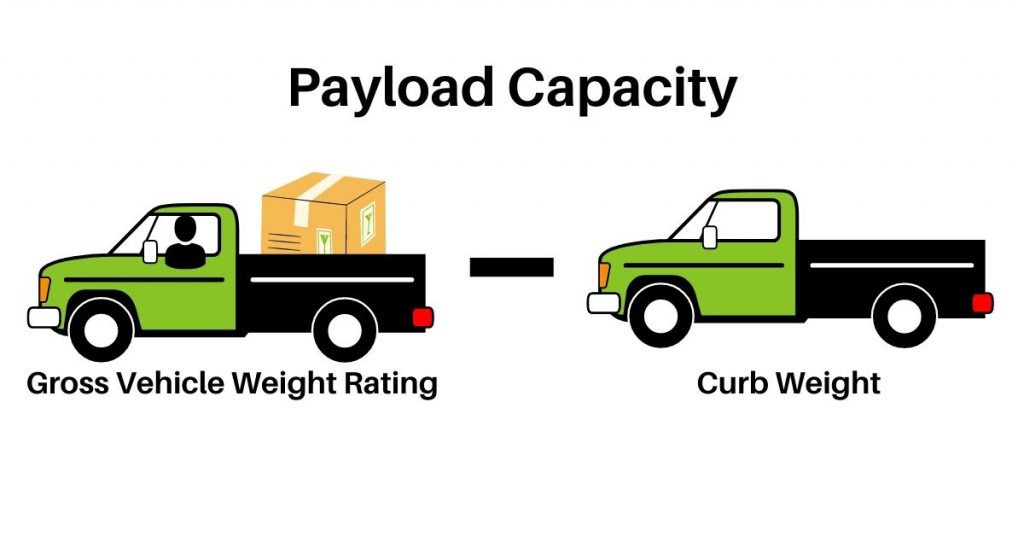
How do they relate to Towing Capacity?
Towing capacity refers to the maximum weight that can be towed behind a vehicle. Towing capacity is related to the metric GCWR or Gross Combined Weight Rating.
Similar to the GVWR, the gross weight of a vehicle plus the weight of a trailer should never exceed the GCWR. So this means that the sum of the vehicle gross weight and the trailer gross weight will total more than the GCWR.
For more details read: How is Towing Capacity Calculated? (With Calculator)
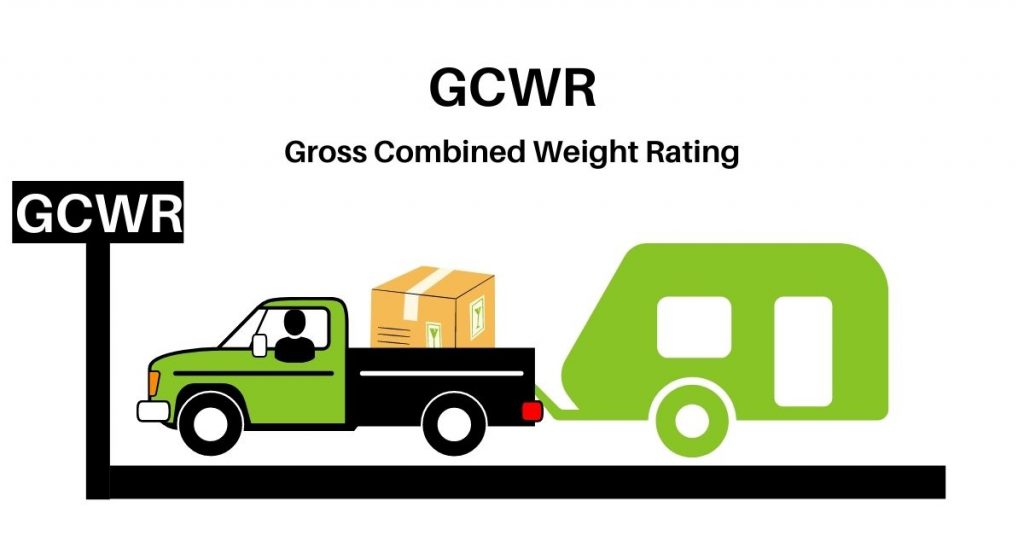
Just like payload capacity, towing capacity is calculated by subtracting the curb weight from the GCWR.
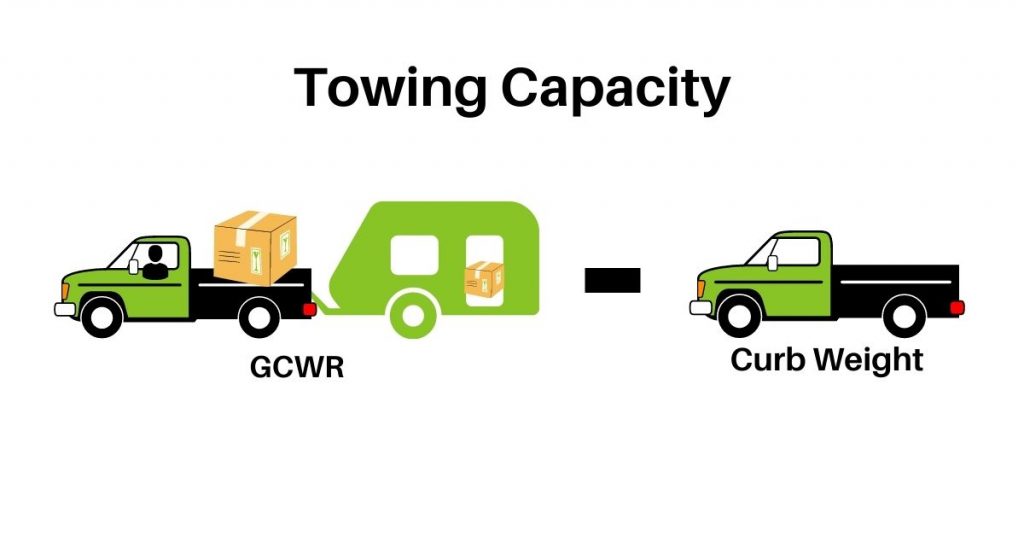
Conclusion
Though curb weight and gross weight are closely related, they are not the same. The curb weight is a predetermined and measured weight from the manufacturer that provides the weight of a vehicle without passengers or cargo with a full tank of gas.
The gross weight is the actual weight of a vehicle at any point in time.
The curb weight is used to calculate the max towing and payload capacity.


